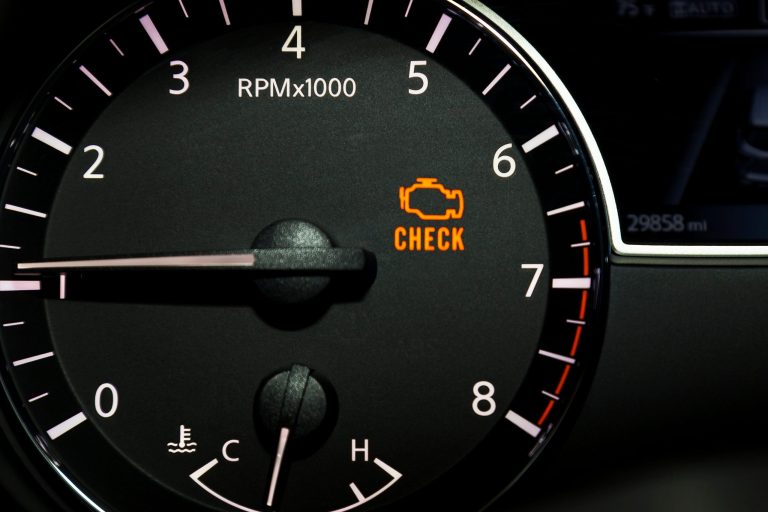Truck Lemon Law
Lemon Law for Trucks

California Truck Lemon Law
California’s Truck Lemon Law is meticulously crafted to shield consumers who buy or lease both new and pre-owned trucks that unfortunately turn out to be “lemons.” Below is a breakdown of its primary provisions:
Covered Trucks: The law mainly covers new trucks. However, pre-owned trucks still under the manufacturer’s new vehicle warranty might also benefit from this protection.
Eligibility Criteria: If a truck’s warranty-related issue remains unresolved despite a “reasonable” number of attempts by the manufacturer or its agents, then that truck is designated as a “lemon.” In cases where the defect is significant (affecting the truck’s functionality, worth, or safety), the manufacturer has the duty to either repurchase or replace the truck for the consumer.
Defining a “Reasonable” Number of Repair Efforts: While a precise definition is lacking, the law presumes a truck to be a lemon if, within 18 months or 18,000 miles of its acquisition:
- Two or more attempts have been made by the manufacturer to fix a problem that could result in serious or deadly injury while operating the truck.
- Four or more efforts have been made to address the same recurring issue.
- The truck has been unusable for more than 30 days (not necessarily in succession) due to warranty-related repairs.
Available Solutions: If a truck is identified as a lemon, consumers have the option of either a full refund or a replacement truck. The refund encompasses the truck’s initial cost (with a small deduction for the consumer’s usage), plus all related taxes, licensing fees, registration charges, and any other official expenses. When choosing a replacement, the manufacturer is responsible for providing a new truck that closely matches or is equivalent to the original lemon.
Leased Trucks: This law also covers trucks under lease agreements. If a leased truck is found to be a lemon, consumers are entitled to reimbursement of their initial deposit and monthly installments, subtracting a fee for its usage.
Legal Costs: Should a consumer win a lemon law claim, the manufacturer must foot the bill for the consumer’s legal representation.
California Truck Lemon Law: Important Considerations and Process
Remember that the legal intricacies associated with this law can be complex, and what’s shared here is a condensed overview. If someone believes they have a lemon truck, it’s prudent to consult an attorney well-versed in California’s Truck Lemon Law. Such a consultation can clarify legal entitlements and guide them toward the best possible legal steps.
How to Begin a Lemon Law Claim for a Truck in California:
Navigating the process to launch a lemon law claim for a truck in California can be layered and detailed. Here’s a step-by-step guide:
- Document All Concerns: Start by diligently noting down every issue and repair effort. This should cover dates, issue descriptions, repair invoices, and all exchanges with the dealership or manufacturer.
- Examine Warranty Coverage: Verify that your truck is protected under the original manufacturer’s warranty or any extended warranty. Make sure that the problems you’re facing are encompassed by the said warranty.
- Reach Out to the Manufacturer or Dealer: Upon recognizing problems, promptly get in touch with the manufacturer or their approved dealer. Always maintain a record of every communication.
- Weigh the Option of Arbitration: Depending on the specifics of your case and the manufacturer’s guidelines, arbitration might be recommended or mandatory. Some manufacturers offer internal arbitration mechanisms, and some state-supervised options are available. Determine if arbitration suits your scenario.
- Seek a Truck Lemon Law Expert: If the issue remains unresolved post-arbitration, or if it’s not a required step and you’re convinced you have a valid lemon law claim, engage an attorney who specializes in truck lemon law. Such an expert can offer legal advice, assess your case, and navigate you through the steps ahead.
- Compile Supporting Documents: Work alongside your attorney to gather all crucial documentation that will fortify your claim. This includes repair history, all relevant conversations, and warranty specifics.
- Dispatch a Demand Letter: Your attorney might compose and forward a demand letter to the manufacturer. This would detail the defects, enumerate repair attempts, and express the request for either a refund or a replacement truck.
- Negotiate or Pursue Legal Action: Depending on the response from the manufacturer post-demand letter, negotiations might begin. If a mutual resolution is elusive, your attorney might initiate legal proceedings against the manufacturer.
- Engage in Court Hearings: If you find your claim advancing to court, your attorney will stand by you, offering evidence and championing your rights in front of either a judge or jury.
- Resolution: A successful lawsuit could entitle you to either a refund (with some deductions for usage) or an equivalent replacement truck. Moreover, the manufacturer might be liable to cover your legal costs.
- Lodge Appeals (when necessary): Either side can contest the verdict through appeals if they dispute the court’s judgment.
Throughout this journey, it’s vital to always be in touch with a seasoned truck lemon law attorney familiar with California’s specific regulations for trucks. Their expertise can provide tailored guidance and amplify the odds of a successful outcome. Make sure you meticulously document every correspondence and piece of evidence pertinent to your claim; they’re indispensable for your case’s robustness.
FAQs: Common Questions Regarding Lemon Law for Trucks
Do I need to go to court for my troublesome truck under the lemon law?
No, heading straight to court for a malfunctioning truck isn’t a necessity. As a first step, it’s advisable to coordinate with the manufacturer or dealership to investigate possible resolutions. Often, issues can be addressed through arbitration or simple negotiations. However, if these methods don’t yield satisfactory results, considering legal proceedings may become a viable option. Seeking advice from a truck lemon law attorney can offer clarity on the best path forward.
Is court litigation required for my faulty truck under the lemon law?
No, immediately opting for court proceedings isn’t mandatory for a lemon truck. Before taking that step, it’s wise to engage with the manufacturer or dealership to seek potential remedies. Many situations are amicably settled via arbitration or uncomplicated discussions. But, if these strategies don’t lead to a satisfactory resolution, legal action might be the next logical move. A consultation with a truck lemon law specialist can help you decide on the appropriate next steps.
What defines a “reasonable” number of repair efforts for a lemon truck in California?
In California, determining a “reasonable” number of repair tries for a lemon truck can differ based on the specifics, but there are general benchmarks: typically two attempts for grave safety issues or four or more attempts (or if the truck remains unfunctional for over 30 days) for other concerns. The exact determination often hinges on the individual situation. For a comprehensive understanding, it’s prudent to consult a truck lemon law attorney.
Top California Legal Expert for Truck Lemon Law
Suspecting your truck might be covered by California’s Lemon Law? Turn to our experienced Truck Lemon Law Attorney for expert advice. We’re dedicated to navigating you through the intricate legal maze, safeguarding your consumer rights concerning your malfunctioning truck. Reach out to us for a no-obligation consultation to discuss the details of your situation.
Remember, you’re never alone on this journey – we stand ready to support you every step of the way at Lemon Car Boss.
Disclaimer: The contents of this website, including but not limited to text, graphics, images, and other material contained herein (“Content”) are for informational purposes only and do not constitute legal advice. The Content is not intended to be a substitute for professional legal advice, diagnosis, or representation. Always seek the advice of an attorney or other qualified legal provider with any questions you may have regarding a legal issue.









